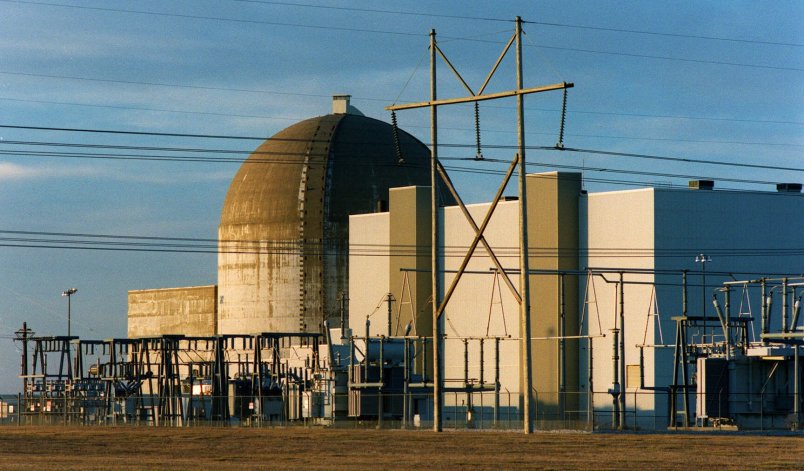Hackers have targeted the computer networks of companies that run nuclear power plants and other energy facilities in the U.S., according to reports in the New York Times and Bloomberg News.
The Department of Homeland Security and the FBI issued a joint report on the hacks last month, according to the New York Times. Both the Times and Bloomberg News reported that Wolf Creek, which runs a nuclear power plant in Kansas, was among those targeted by the hackers.
It’s not clear whether the hackers sought information or were gearing up for destruction, and there’s no sign that the hackers were able to access the facilities’ control systems, per the New York Times.
In a joint statement obtained by the Times and Bloomberg News, DHS and the FBI said, “There is no indication of a threat to public safety, as any potential impact appears to be limited to administrative and business networks.”
Bloomberg News reported that Russia is the “chief suspect” in the hacks, citing “three people familiar with the continuing effort to eject the hackers from the computer networks.” The New York Times reported that the techniques use by the hackers in the U.S. are similar to those of a Russian hacking group called “Energetic Bear.”







Not Russia, just a 300lb. person in a bedroom. Nothing to see here folks.
They do not have to shut down the nuclear (or conventional) power plants if they can shut down the power distribution grid. Oh what I would give to have a President who did not invite Russian hackers to screw around with us.
Vlad needs to be cautious, his spies have NO idea how outteched they might be, rumor has it our spooks got this 4 dimensional device they can drone up his nether orifice and start spewing cotton candy… nothing deadly or dangerous, or even uncomfortable for some, but very awkward while trying to watch gymnastics…
Except one can hack a coal mine. It’s computerized now, like drone aircraft.
http://www.chicagotribune.com/business/ct-coal-workers-video-games-20170703-story.html